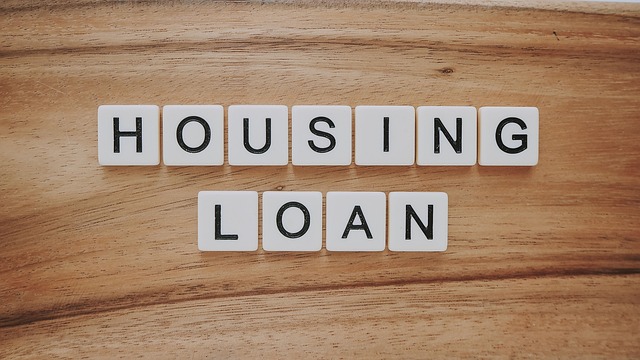Many people struggle with credit challenges due to unforeseen circumstances or poor financial management, impacting their ability to secure loans and manage debts effectively. Solutions like loan consolidation options, financial crisis solutions (including debt settlement programs and emergency debt assistance), and tailored debt reduction plans can help borrowers overcome these obstacles, simplify repayment, and improve financial stability. Loan consolidation transforms complex scenarios into manageable processes, providing flexibility and peace of mind during financial crises.
Many borrowers face credit challenges that can leave them feeling stuck. If you’re struggling with loans debt consolidation, financial crisis solutions, or managing overwhelming debt, know there are options available to help. This comprehensive guide explores strategies from understanding credit impacts to accessing emergency debt assistance and settlement programs. Discover the best approaches for debt reduction plans tailored to your unique situation, empowering you to take control of your financial future.
- Understanding Credit Challenges and Their Impact
- Loan Consolidation Options: A Comprehensive Overview
- Financial Crisis Solutions: Strategies for Debt Management
- Exploring Effective Debt Reduction Plans
- Accessing Emergency Debt Assistance and Settlement Programs
Understanding Credit Challenges and Their Impact

Many individuals face credit challenges, often due to unforeseen circumstances or poor financial management. These struggles can significantly impact one’s ability to secure loans and manage debts effectively. A financial crisis can leave borrowers feeling overwhelmed, especially when dealing with multiple lenders and high-interest rates. Understanding these challenges is the first step towards finding appropriate relief.
Credit issues may manifest as late payments, defaulting on loans, or accumulating high debt levels. When left unaddressed, these problems can snowball, leading to damage in one’s credit score and financial health. Fortunately, various solutions exist to help borrowers overcome these obstacles. Loan consolidation options allow individuals to combine multiple debts into a single loan with potentially lower interest rates. Financial crisis solutions like debt settlement programs or emergency debt assistance can negotiate with lenders for reduced balances or more manageable repayment terms. Debt reduction plans, tailored to each borrower’s situation, offer structured approaches to pay off debts over time, improving financial stability and creditworthiness.
Loan Consolidation Options: A Comprehensive Overview

Loan Consolidation Options have emerged as vital solutions during financial crises, offering a comprehensive approach to managing and reducing debt. This strategy involves combining multiple high-interest loans into a single loan with a potentially lower interest rate, simplifying repayment processes and alleviating the burden of multiple payments. In times of economic strain, many individuals find themselves burdened by emergency debt assistance needs, making loan consolidation an attractive option for debt reduction plans.
There are various programs available, including debt settlement programs that negotiate with lenders to reduce the overall debt amount. However, it’s crucial to understand that each program has its own set of requirements and implications. Loan debt consolidation can be a game-changer, providing financial flexibility and peace of mind by transforming complex repayment landscapes into manageable, streamlined processes.
Financial Crisis Solutions: Strategies for Debt Management

Struggling with credit challenges? You’re not alone. Many borrowers face financial crises that leave them burdened by debt. However, there are effective financial crisis solutions available to help manage and reduce debt, offering a sense of relief and new possibilities. One popular option is loan consolidation, where multiple loans are combined into one with potentially lower interest rates, simplifying repayment and saving money over time.
Beyond loan consolidation options, exploring debt reduction plans like debt settlement programs can provide a fresh start. These programs negotiate with creditors to restructure or forgive a portion of the debt, offering immediate financial relief and a clearer path toward becoming debt-free. Emergency debt assistance is also available for those facing unforeseen circumstances, providing temporary support during challenging times. Remember that seeking professional guidance from financial advisors or specialized debt organizations can be crucial in navigating these options effectively.
Exploring Effective Debt Reduction Plans

Many credit-challenged borrowers often find themselves overwhelmed by a mountain of debts, but there’s hope in exploring effective debt reduction plans. One popular option is loan consolidation, which involves combining multiple loans into one with potentially lower interest rates and more manageable payments. This strategy simplifies repayment and can free up cash flow for other financial needs.
There are various financial crisis solutions available, including debt settlement programs that negotiate with creditors to reduce the overall debt amount. While this might sound appealing, it’s crucial to understand the potential impact on credit scores. As an alternative, emergency debt assistance programs offer support through counseling and education, helping borrowers create sustainable budget plans and avoid defaulting on loans. These options can be life-saving during challenging financial times, providing a path towards financial stability and recovery.
Accessing Emergency Debt Assistance and Settlement Programs

For credit-challenged borrowers facing overwhelming debt, exploring loan consolidation options and financial crisis solutions is a crucial step toward relief. One effective strategy to consider is emergency debt assistance. These programs are designed to help individuals navigate through financial hardships by offering various support mechanisms, including debt reduction plans. They can negotiate with lenders on behalf of borrowers, aiming to lower interest rates or restructure terms to make payments more manageable.
Debt settlement programs, another valuable resource, involve a third-party organization that communicates with creditors to agree on a lump-sum payment, potentially resulting in the discharge of a portion of the debt. This approach can be particularly beneficial during financial crises, providing borrowers with a chance to regain control over their finances and avoid the long-term consequences of defaulting on loans.







